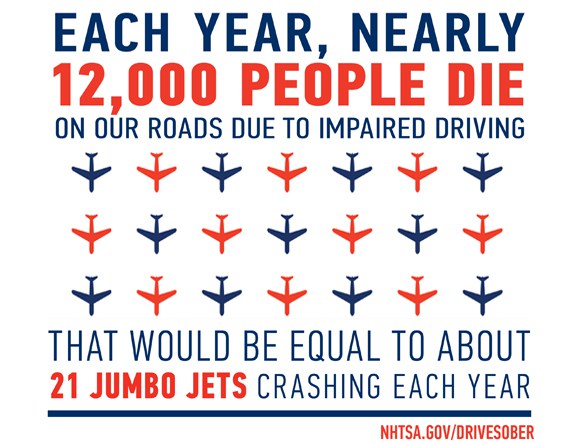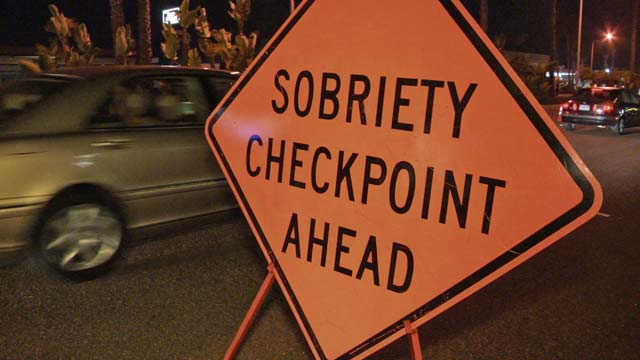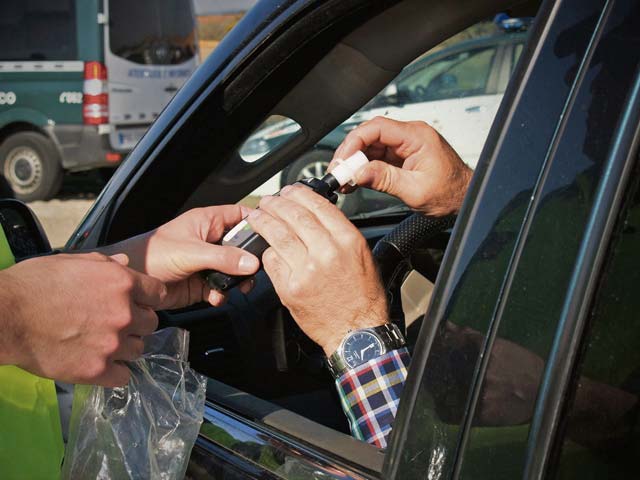
Many people celebrate the holiday season at Christmas markets, local festivals and parties, but driving to or from these festivities can be dangerous because of impaired drivers.
During December’s Nation-al Drunk and Drugged Driving Prevention Month (3D Month), people are encouraged to have a plan and never get behind the wheel while under the influence of drugs or alcohol.
“3D Month brings awareness to the importance of sober driving to reduce alcohol- and drug-related auto accidents,” said Ainsley Moreno, an intern with the U.S. Army Garrison Rheinland-Pfalz Army Substance Abuse Program. “It also reminds the community how important is to have a plan and maintain safety guidelines before any celebration.”
According to the National Highway Traffic Safety Administration, 10,497 Americans died from crashes involving alcohol-impaired drivers last year, and it isn’t just a concern in the U.S., it’s an important matter overseas as well.
There were 25 alcohol-related accidents in the Kaiserslautern Military Community last fiscal year with six of those collisions involving more than one vehicle, said Seth Dyer, U.S. Army Garrison Rheinland-Pfalz Safety and Occupational Health specialist.
“According to the U.S. Department of Transportation, motor vehicle accidents are the No. 1 killer of children younger than 15; compound that with alcohol and the faster speed limits in Germany and you have a dangerous situation,” he said. “Everyone can be affected by an impaired driving fatality. Even if you are single and don’t have kids, someone you know is on the road with their kids in the KMC.”
During the holidays, Dyer advised people to be more vigilant on the roads.
“In 2016, we had two Driving While Intoxicated/Driving Under the Influence events over the holidays. So far during this holiday season, we’ve only had one, but we still have more than 30 days left in 2017,” he explained. “Every Soldier, Sailor, Airman, Marine, civilian and family member needs to think about drug and alcohol driving safety. Together, we can reduce the number of accidents for the rest of the year and into the New Year.”

3D Month advocates people having a plan before they celebrate, said Josh Goslin, an intern with garrison ASAP.
“As a community, we have to take care of one another. So, if you see someone who is impaired, please ensure that individual gets home safely,” he explained. “If you are unable to drive the person home, call a taxi, a friend or Armed Forces Against Drunk Driving Program at 0631-536-2233 to provide a free, safe ride home.”
Dyer agreed with Goslin about prior planning before getting too festive with alcohol.
“Have a plan, and then have two or three backup plans in case your original plan fails. Have the phone numbers of your friends, supervisor, first sergeant, Charge of Quarters desk and AADD on hand to provide help or a ride in case you need it,” the safety specialist said. “The consequences of failing to plan can be deadly for everyone involved.”
The legal blood-alcohol limit in Germany is 0.05, and 0.03 for anyone involved in a vehicle accident. German blood-alcohol limits apply on military installations as well. Although military police use a breathalyzer to verify drunk driving, they have to resort to alternative methods to determine drugged driving, Moreno said.
“Not all instances involve illegal drugs. If someone is ill and taking prescription drugs or over-the-counter drugs that cause drowsiness – that’s also impaired driving,” she said. “If police have probable cause, they can perform a field sobriety test by drawing blood to confirm.”
In accordance with the Uniform Code of Military Justice, servicemembers can be arrested for DUI even if their vehicles are parked. So drunk individuals can be charged if they have physical control of their vehicle, to include sitting in the driver’s seat with the keys in their pocket. In past incidences, servicemembers were arrested and charged with DUI-related offenses for sleeping in the driver’s seat or running the engine to play the stereo or run the heater.
So, taking care of your battle buddies when they’ve had too much to drink is not only the best alternative, it’s the right thing to do, Dyer said.
“It takes a lot of intestinal fortitude to stand up to a buddy who has been drinking and steer him or her in the right direction, and it takes a lot more to stand up to a person of senior rank,” he said. “Stopping someone from driving drunk might cause your relationship to be uncomfortable for a couple of days or you might lose the person as a friend or cause static at work, but that person you saved from drunk driving would rather be alive than just another statistic in the graveyard.”



